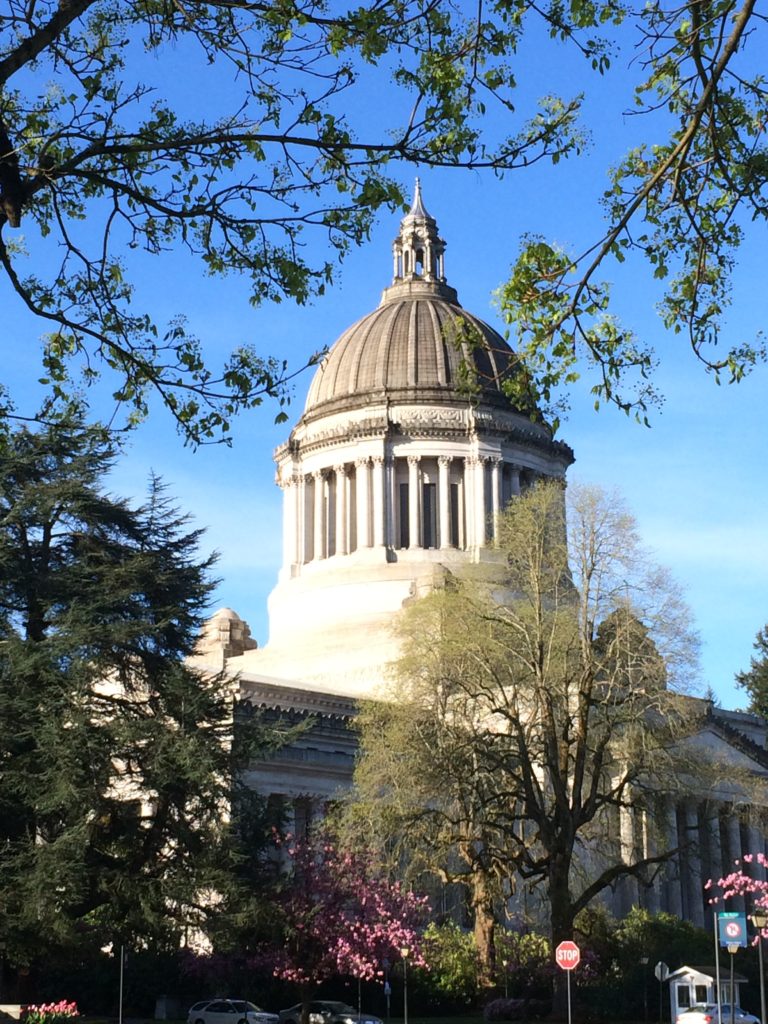Testimony in support of SB 5513 – the Tax Exemption Transparency and Accountability Act
Washington State Senate Ways and Means Committee, Jan. 18, 2018
Steve Zemke – Tax Sanity
Thank you for this opportunity to testify on this legislation.
This is the fifth year this bill has been before you and each year it picks up additional support. Senate SB 5513 has 14 sponsors and its companion bill in the House, HB 1500, has 33 sponsors. This is almost one third of our state Legislators.
Legislation to create a Tax Expenditure Budget has been increasingly supported by numerous groups in our state, including the Washington State Budget and Policy Center, All in for Washington, the Washington State Labor Council, the League of Women Voters of Washington, Washington’s Paramount Duty, the Washington State Democratic Party, the Washington Education Association, SEIU 775, Northwest Progressive Institute, Washington Federation of State Employees, Washington State Council of Firefighters, Faith Action Network, Puget Sound Advocates for Retirement Action, and others
Why are these groups supporting this legislation? Because they believe that a system of tax expenditures that gives away more in revenue from the tax base than it collects is a broken system. They believe that tax exemptions need transparency and accountability and fairness. That does not exist now.
Tax Exemptions, preferences, deductions, credits, and deferrals are off budget expenditures. They lack the transparency and accountably that exists for other expenditures the state makes as part of the biennial budget process. According to the Department of Revenue’s projection in their 2016 Tax Exemption Report for the 2015 to 2017 biennium they projected that while the state would collect some $7.4 billion in B&O taxes, they would exempt from the same tax base some $11.4 billion. This gap has widened since the last biennium.
Including the rest of the tax exemptions in their report, the Department of Revenue projected that off budget tax expenditures would total almost $40 billion while only collecting revenue totaling some $32.6 billion.
Of the 694 tax exemptions in that report about 450 are discretionary. The Department of Revenue projected that in the 2017 to 2019 Biennium that of the $54 billion in projected tax expenditures, some $30 billion would fall into “potential revenue gains”.
This legislation does not mandate wholesale repeal of tax expenditures. It asks for accountability and transparency and biennial review and gives the legislature the ability to act to end exemptions if they do not meet the priorities of government the same as expenditures in the regular biennial operating appropriations budget must.
Concern about the current system includes a quickly dated Tax Exemption report by the Department of Revenue that is only updated once every 4 years. Most other states in the country update their report every 2 years or less. California updates their Tax Expenditure report every year.
Companies like Microsoft, Starbucks, Expedia, Adobe and Boeing all must report to their stockholders every year and issue quarterly profit and loss statements. Their financial statements are scrutinized by their stockholders. It does not make sense that Washington State only updates its Tax Exemption Report every 4 years. It will next be updated in 2020. It should at a minimum be updated two years just as the state biennial budget is..
Only 73 of the 694 listed exemptions in the 2016 Tax Exemption Report have sunset provisions. This means 89% of the tax expenditures have no sunset provision and never require the Washington State legislature to ever vote on them again. Meanwhile all expenditures in the regular operating appropriations budget are scrutinized and voted on every 2 years with adjustment made in the 2nd year of the biennium.
Also in the Tax exemption report, 54 exemptions are listed as “unable to disclose” the amount of revenue involved. Businesses and other entities are benefiting from state tax law in getting exemptions and lower or no taxes. The public has a right to know the value of these exemptions.
The public has a right to know that these exemptions are creating jobs or providing valuable services to Washington State citizens just as they expect expenditures in the regular budget appropriations bill to produce.
We require that accountability in the regular budget appropriations process – we don’t say we’re spending state revenue but the public doesn’t have the right to know because the recipient doesn’t want us to know what they are getting.
With the current lack of accountability and transparency and sound fiscal review and evaluation as to whether current tax expenditures meet the state priorities of government and have clear measurable objectives as to their effectiveness in meeting state needs, taxpayers and citizens in this state increasingly believe state government and the legislature are not doing their job.
.Please step up and vote to fix this broken tax expenditure system that severely lacks needed transparency, accountability and sound fiscal management of our total state budget.
Steve Zemke
Director Tax Sanity
www.taxsanity.org


